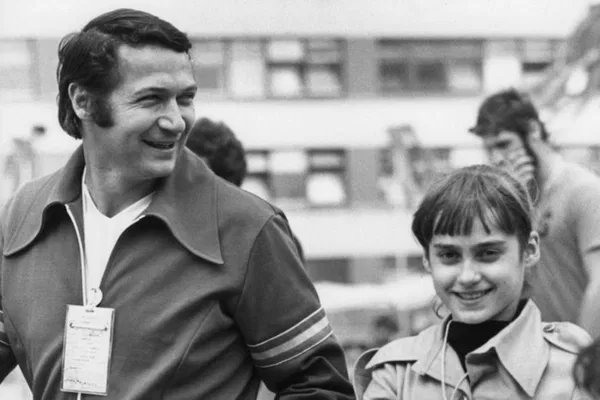Bela Karolyi Laid to Rest Amid Debate Over His Legacy in Gymnastics
Bela Karolyi, the legendary gymnastics coach who revolutionized the sport, was laid to rest on Sunday, November 17, in a private ceremony in Huntsville, Texas. The event, attended by family, close friends, and several of the gymnasts he mentored, became both a celebration of his groundbreaking career and a reminder of the controversies surrounding his legacy. Among those present were iconic gymnasts Mary Lou Retton and Mary Lao, who shared their gratitude for Karolyi’s influence on their careers. Bela’s wife and longtime coaching partner, Martha Karolyi, led the heartfelt farewell.
While the gathering honored Bela’s monumental achievements, it also unfolded under the shadow of ongoing online criticism. His strict coaching methods, as well as allegations of misconduct at the Karolyi Ranch training facility, have fueled intense debate, particularly regarding his handling of athlete welfare.

Karolyi’s Transformative Impact on Gymnastics
Bela Karolyi’s impact on gymnastics is undeniable. He first rose to prominence as the coach of Nadia Comaneci, who scored the sport’s first perfect 10 during the 1976 Olympics. Later, he reshaped the U.S. gymnastics program, coaching athletes like Mary Lou Retton to Olympic gold and mentoring numerous other stars. His rigorous training methods and vision for developing elite athletes elevated American gymnastics to new heights, solidifying his reputation as a transformative figure in the sport.
However, his coaching style often came under scrutiny. While many celebrated his enthusiasm and famous phrases like “You can do it!” others questioned the physical and emotional toll his methods took on athletes.
Controversy at the Karolyi Ranch
The Karolyi Ranch in Texas, once heralded as a hub of gymnastics excellence, became a focal point of criticism. Athletes who trained there recalled an environment of intense discipline, where mental and physical endurance were pushed to the limit. While some credited this approach with their strength and success, others described instances of humiliation, disregard for injuries, and neglect of basic needs such as food and rest.
The ranch’s reputation was further tarnished by its connection to Dr. Larry Nassar, who abused young gymnasts during training camps held there. Although the Karolyis denied any knowledge of Nassar’s actions and were not criminally charged, their association with the scandal has complicated their legacy. Many athletes have since called for systemic changes in the sport to prioritize athlete welfare over success.
A Divisive Legacy
Even in death, Bela Karolyi’s legacy remains polarizing. Supporters emphasize his unparalleled contributions to gymnastics, arguing that his methods produced unprecedented results. Critics, however, contend that the price of these successes was too high, pointing to the emotional and physical scars left on some athletes.
Mary Lou Retton and Mary Lao, who spoke during the ceremony, reflected on their experiences with Bela and Martha. Both expressed gratitude for the Karolyis’ role in shaping their professional journeys. However, the broader gymnastics community remains divided. Some view Bela as a legendary coach who pushed athletes to greatness, while others see his methods as emblematic of a flawed system that often placed victory above well-being.
The Debate Over Success and Sacrifice
Bela Karolyi’s coaching style has sparked ongoing debate about the balance between demanding excellence and ensuring athlete welfare. His methods, once celebrated for producing champions, are now examined through a more critical lens. Iconic moments like Kerri Strug’s vault at the 1996 Olympics—completed despite an injury—are often cited as examples of a win-at-all-costs mentality.
The gymnastics community continues to grapple with how to remember Bela Karolyi. While his innovations and achievements are celebrated, they are accompanied by serious questions about the ethical implications of his approach.
As his legacy is revisited, the conversation underscores the need for a more holistic approach to athlete development—one that values both success and well-being.